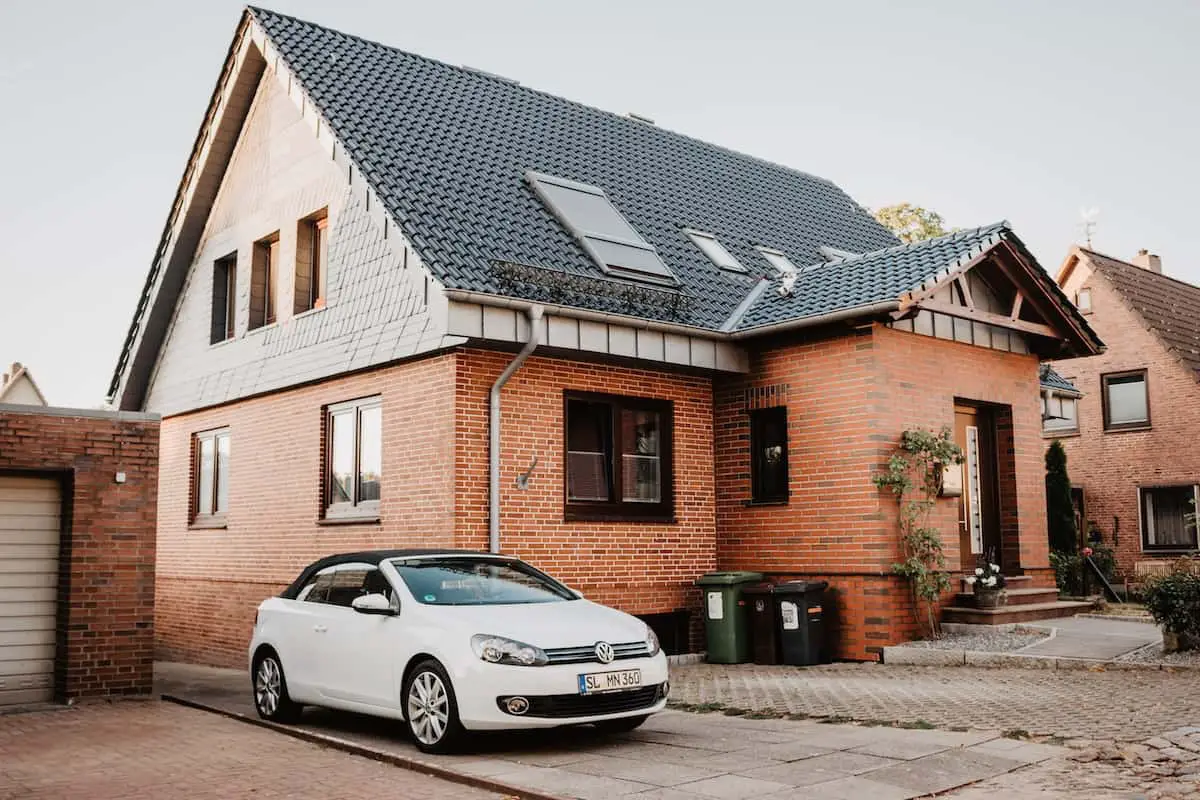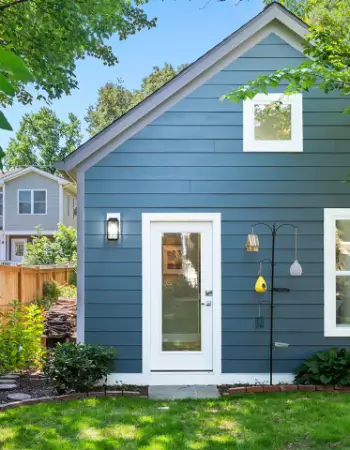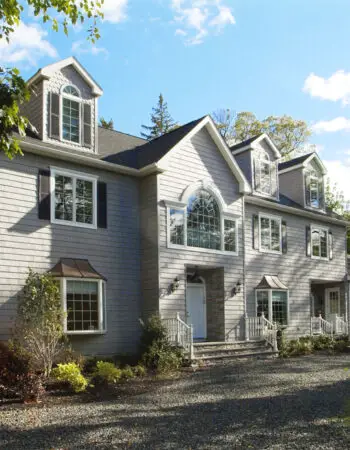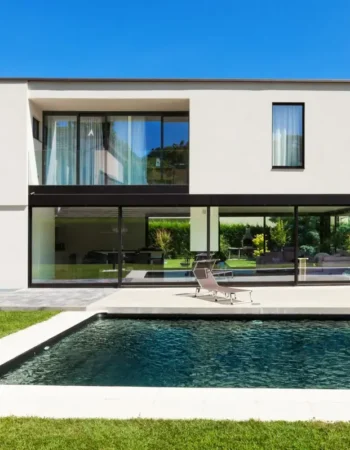Modular homes are built through a very industrialized building process while brick homes follow a more traditional building approach. These different procedures together with the materials utilized to raise both homes’ structures grant each one of them with some benefits and a few inconveniences.
Modular homes are built in a factory-like environment and follows a mechanized process that looks more like an assembly line rather than a traditional construction work. Brick house building stays on the conventional side of construction, depending on manual labor to raise the structure right on site.
While built different, both types of homes stand out because of their benefits:
- Modular homes can be built in a very short amount of time without degrading its quality.
- Brick building excels due to the durability and low maintenance needs of the structure.
Despite the superior advantages that each one of these home has, they also offer a set of inconveniences that should be taken into consideration. In order to choose the best type of home we should analyze our own unique situation and identify the most important factors that will lead us towards either a modular or a brick built home.
What is the definition of a Modular built home. Pros and Cons
A modular built home is a house that has been built with a modern building method consisting on prefabricating three dimensional sections of the house known as modules. Every module is manufactured off-site up to completion: structure, plumbing, electrical and finished; and shipped to the building site to be assembled.
Modular homes can be built out of a variety of materials, though only those materials that can ensure a fast and mechanized building process are chosen for this type of construction. The most common construction material used in the U.S. to build modular homes is wood, followed by concrete and steel which are usually more frequently used on larger or structurally demanding projects.
Pros of Modular homes
- Fast construction timeline: Building a modular home can take as short as 16 weeks [1]. Most of the modular home construction take places in a factory-like setting where the building process is quite industrialized. The mechanization of the building works as well as the sheltered building environment provide by the factory, speeds up the overall construction process.
- Cost efficient: Shortening the construction timeline has a direct benefit on the modular home cost, though there are other aspects of these building technology that lowers the overall cost of it. Since the construction works are all centralized in one same location the transportation needs both for workers and materials are highly reduced. Moreover, the industrialization of the process cuts down the human workforce and its costs.
- Extensive design options: Modular building entails that the house is built per modules but that’s it. There is a variety of materials’ possibilities, design options, and styles to choose when building with modular construction.
- Earthquake resistant: Since every module conforming the modular home is build off-site and shipped to the building site once finished, the modules are structural units by themselves. The structure of every module isn’t only built up to the enforced minimal requirements that every permanent home has to adhere to, but strengthen to resist the strong tremors to which it is exposed during the transportation from the factory to the building site [2].
Cons of Modular homes
- Usually, not fireproofed: The most common material used to build modular homes is wood, which is one of the most flammable construction materials. Some modular home companies are designing homes that are resistant to fires [3] and since all modular homes are built up to the building code requirements, all modular homes are take fire safety into consideration. Still compared to other building techniques, wood modular homes aren’t the safest in front of fires.
- Low public opinion: Modular homes are often mistakenly equated to mobile homes, a comparison that couldn’t be farther from the truth since it is based in a misunderstanding rather than a solid judgement. However, even if this negative opinion is unfounded, it could become an issue when trying to rent or resell your modular home.
What is the definition of a Brick built home. Pros and Cons
A brick built home is a house that has been built following a traditional construction method known as brick masonry. This building technique consists of laying bricks together with mortar to raise the walls that will form the structure of the house as well as the exterior finished sides.
Not all homes offering a brick looking siding are brick built homes, some homes look like brick construction from the outside but their structure is made of a different material, usually framed wood. It isn’t the siding or look what defines a brick built home, but its structure.
Pros of Brick built homes
- Long lasting and low maintenance needs: Brick homes have a long lifespan, compared to other materials such wood, bricks do not deteriorate or crack. These types of homes are sturdy and barely need maintenance.
- Energy efficient: Being made of clay, bricks are an environmentally friendly material as well as a good building material choice to achieve energy efficiency. Especially when solid bricks are good at retaining the temperature, slowing down the wall’s loss of heat, which reduces the need for extra heating and cooling systems. For temperature control, brick walls work better when combined with isolation [4].
- Fire resistant: Bricks are considered non-combustible, meaning they can’t get on fire. The reason behind it is mainly its nature: bricks are made of clay that has been dried and fired at a temperature of 1.000 ºC or 1.832 ºF. A brick masonry house is likely to stay up and maintaining its structural qualities after a fire [5].
- High value: Home buyers not only appreciate the charming look of a brick home but the benefits of it as well. Brick homes sell faster and at a better rate than wooden frame homes. Even though these homes are more expensive they are a worth investment since they require less maintenance and given its strength and fire resistance cost 5% to 8% less to insure [6].
Cons of Brick built homes
- Slow building: Building a brick structure requires skilled human labor and takes time since the walls are constructed brick by brick.
- Expensive to build: Given that the brick building process cannot be mechanized and it is time consuming the cost of building a whole brick structure is high. When it comes to buying the brick itself, there are different price ranges, though it isn’t recommended to opt for the cheapest choices since they are usually more porous and especially in areas where temperatures drop to freezing levels, if the pores retain water it can ice and easily crack the brick.
- Limited color palette: Bricks are building blocks made of fired clay which color is mainly a result of the minerals and metallic oxides present in the clay [7]. Therefore, the most common brick colors are those with an earthy tone such as reds, browns or greys [8]. While bricks can definitely be painted, in general the color options for the raw material are reduced.
- Not Earthquake resistant: A brick structure is definitely a strong and robust one, though it isn’t the best building solution in case of earthquake. The structure of a brick built house is built with bricks and mortar only, a combination granting the wall with a strong compression resistant but no flexibility which is a key quality for structures to have in front of earthquakes. There are solutions to make a brick masonry home earthquake proofed, though it has to be designed for that purpose.
When to choose one over the other when building a new house?
Both modular and brick built homes make a really good quality housing option. They both have strong benefits as well as some inconveniences which are more or less significant depending on each particular situation.
Next we have compiled some of the most important situations that should be taken into consideration when choosing one type of house over the other:
- Tight building schedule: When we need a fast building solution, a modular home offers the best outcome. The construction timeline is shorter plus since most of the building works take place in a sheltered environment it is unlikely to experience the delays that are so common in traditional construction due to the weather.
- Low budget: A modular home offers a similar product a brick built house does for a smaller amount of money. If our budget is tight modular construction will offer the most solutions.
- Minimal house maintenance: While both modular and brick built offer a house of outstanding quality, some exterior sidings require reparations or maintenance over time. Brick homes offer a wall that doesn’t need to be painted nor maintained.
- Freedom of style and design choice: Brick built homes can be designed in a multitude of ways, though they usually offer the unique exterior look typical of this type of construction. If we want the freedom to choose from a multitude of styles and colors modular construction is a smarter home selection.
- Living in a high-risk fire zone: When building in an area where fires are common building a fireproofed house is key and a traditional brick built home offers the best outcome in this situation.
- Living in an Earthquake prone area: Modular homes, having been designed to stand the tremors of the truck shipping are a good housing solution in areas where earthquakes are common.
Since both building systems offer great benefits you may wonder the possibility of combining the two. However, while it is possible to brick the exterior of a modular home to offer a bricked house look, as of today building a modular home with a bricked structure isn’t possible.
References
- (2019, August 15) How Long to Build a Modular Home? Design Build Modular https://designbuildmodulars.com/blog/how-long-does-it-take-to-build-a-modular-home/
- (2015, April 17) Modular Homes Provide Advantages in Severe Weather Supreme Modular https://www.suprememodular.com/residential-construction/new-jersey-modular-homes/modular-homes-provide-advantages-in-severe-weather/
- Verma, U. (2018, December 4) New PropTech start up aims to create modular fireproof homes Arden Media Company, LLC https://inbuildingtech.com/construction/modular-homes-fireproof-proptech/
- Shine, E. (2021, July 24) Types Of Energy-Efficient Wall Construction: Which Is Best? Attainable Homehttps://www.attainablehome.com/types-of-energy-efficient-wall-construction/
- Building a home in an area with high fire danger? PGH Bricks & Pavers https://www.pghbricks.com.au/inspiration/the-wall-blog/protect-your-home-from-fire
- Sold! How Brick Construction Enhances the Resales Value of a Home Acme Brick https://brick.com/node/3002
- (2006, December 9) Manufacturing of Brick Technical notes on Brick Construction -The Brick Industry Association https://www.gobrick.com/docs/default-source/read-research-documents/technicalnotes/9-manufacturing-of-brick.pdf?sfvrsn=0
- Cao, L. (2020, July 29) The Colors of Brick ArchDaily https://www.archdaily.com/944493/the-colors-of-brick



